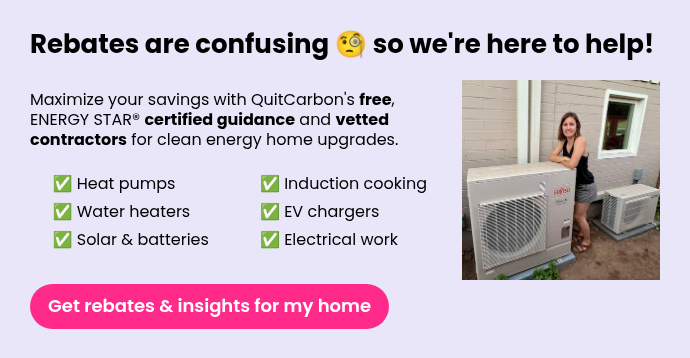Do Heat Pump Water Heaters Work in Cold Weather?
Yes, and they do it better than you might think.
Heat pump water heaters (HPWHs) are built to deliver efficient hot water year-round, even in cooler climates. In fact, they’re becoming increasingly popular in northern states where winters are long and temperatures drop, proving that clean, electric technology works anywhere when installed correctly.
Let’s break down how they perform, what to consider in colder areas, and how to make sure you get the most from yours.
How Heat Pump Water Heaters Work
Instead of creating heat directly (like traditional electric or gas heaters), a heat pump water heater moves heat from the surrounding air into the water tank.
That’s what makes them so efficient, they’re not burning fuel, just transferring warmth. Most models work best when surrounding air stays above 37°F, which makes basements, garages, or utility rooms ideal locations.
Modern ENERGY STAR® rated heat pump water heaters are designed to handle variable temperatures and switch between operating modes as needed, ensuring you always have hot water when you need it.
How Cold Weather Affects Heat Pump Water Heaters
Cold air does affect how efficiently a heat pump can extract heat but modern units are built to adapt.
Hybrid heat pump water heaters can automatically switch between heat pump mode and electric mode depending on temperature and demand. That means during very cold days, they may use a bit more energy, but still far less than traditional water heaters overall.
If your home’s water temperature drops significantly in winter, look for a model with multiple operating modes so you can boost performance during the coldest weeks while maintaining long-term efficiency.
Installation Tips for Cold Climates
Location makes a big difference in how well your system performs. For colder areas:
-
Install indoors: Basements, laundry rooms, or utility spaces are best.
-
Ensure proper airflow: So the heat pump can draw and move air efficiently.
-
Add pipe insulation: To prevent heat loss and improve overall efficiency.
-
Work with a qualified installer: Someone who understands both local codes and cold weather setups.
A well-placed, well-installed system performs efficiently all year long and will keep your hot water steady even when temperatures dip outside.
Energy, Cost, and Environmental Benefits
Even in winter, heat pump water heaters can cut energy use by up to 70% compared to standard electric models.
According to ENERGY STAR®, that translates to annual savings of $400–$600 and more than $5,000 over the system’s lifetime.
By using electricity more efficiently, HPWHs also reduce greenhouse gas emissions, helping you lower your home’s carbon footprint while keeping your energy bills predictable.
Is a Heat Pump Water Heater Right for You?
For most homes, yes. You’ll just want to consider:
-
Climate zone: How low temperatures typically go.
-
Installation space: Ideally indoors or semi-conditioned.
-
Home insulation: Good insulation helps maintain air temperature around the unit.
-
Humidity: Moderate humidity supports system performance.
If you’re unsure, one of QuitCarbon’s energy advisors can help you understand what kind of system fits your space and how much you could save through available rebates.
Winter Maintenance Tips
A little maintenance keeps your system running smoothly year after year:
-
Clean or replace air filters regularly.
-
Check the operating mode before the cold season starts.
-
Schedule annual inspections to catch issues early.
-
Confirm that backup elements are working properly.
These small steps protect your investment and keep your hot water reliable, no matter the weather.
What This Means for You
Modern heat pump water heaters are built for real life conditions, cold weather included.
With hybrid technology, adaptable modes, and smart installation, they offer a reliable way to cut costs, save energy, and make your home more resilient year-round.
If you’re considering upgrading your old water heater, there’s no better time to explore a heat pump option.
QuitCarbon can help you find the right model, trusted installers, and rebates available in your area .

